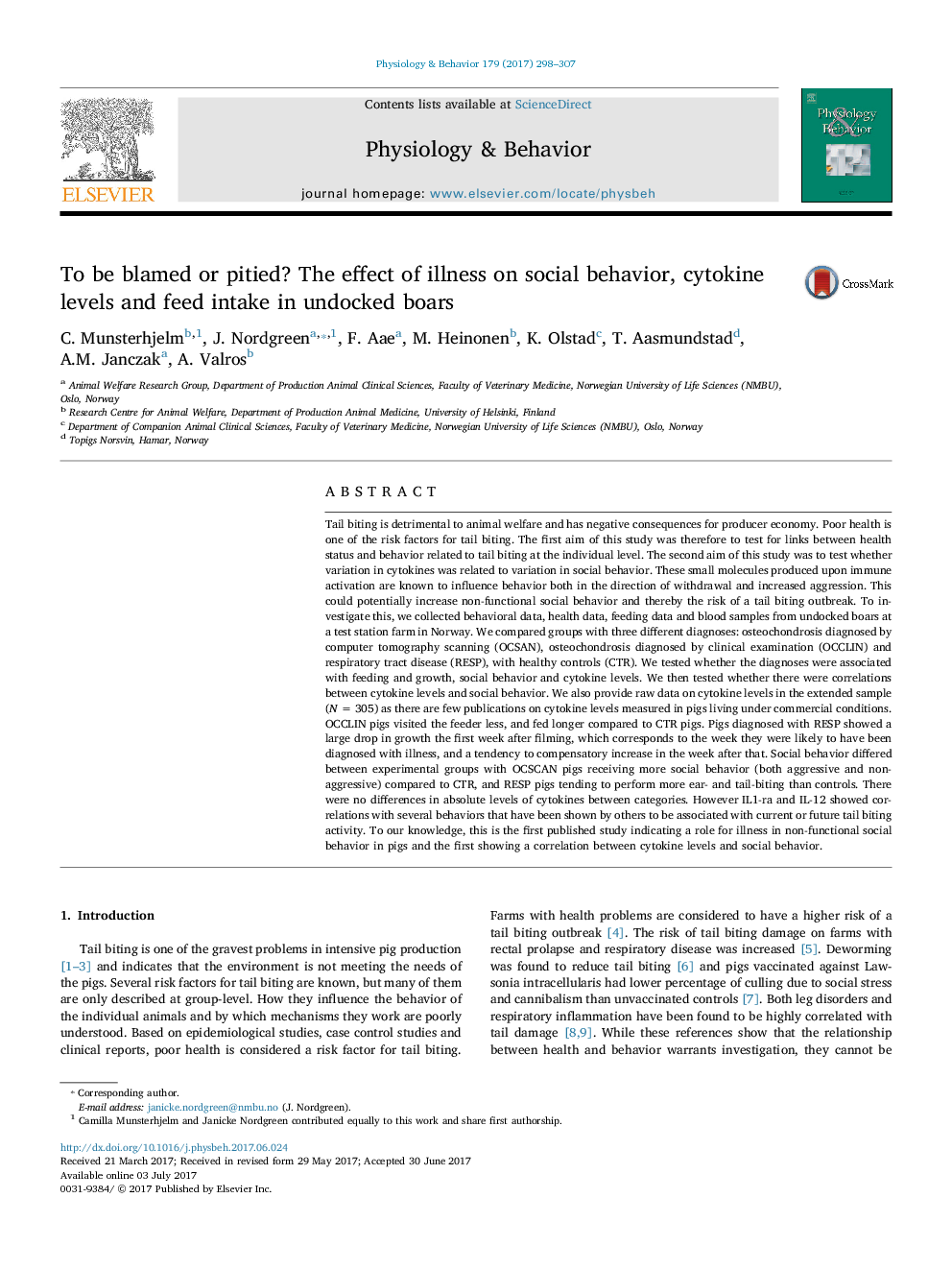ترجمه فارسی عنوان مقاله
به جرم یا ناراحتی؟ تأثیر بیماری بر رفتار اجتماعی، میزان سیتوکین و مصرف خوراک در گره های بدون قاعده
عنوان انگلیسی
To be blamed or pitied? The effect of illness on social behavior, cytokine levels and feed intake in undocked boars
| کد مقاله | سال انتشار | تعداد صفحات مقاله انگلیسی |
|---|---|---|
| 139968 | 2017 | 10 صفحه PDF |
منبع

Publisher : Elsevier - Science Direct (الزویر - ساینس دایرکت)
Journal : Physiology & Behavior, Volume 179, 1 October 2017, Pages 298-307

